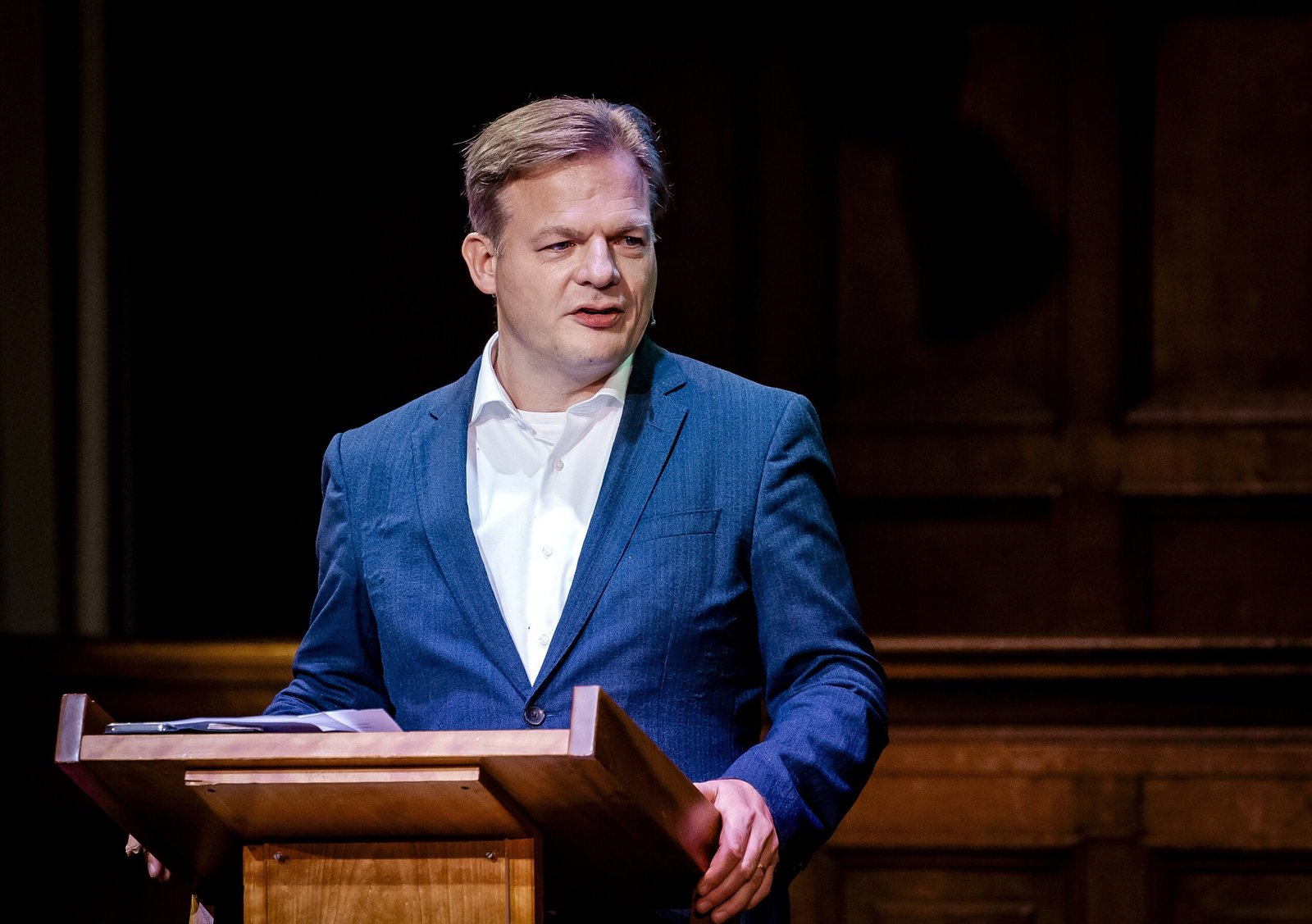Omtzigt warns of “geopolitical implications” of labour migration

The declining birth rate in the Netherlands combined with the growth of African countries will have far-reaching implications for migration over the next 30 years, NSC leader Pieter Omtzigt has said.
Omtzigt called for a debate on Europe’s changing population patterns as he delivered the annual HJ Schoo lecture, seen as the unofficial curtain-raiser for the new political year.
Over the next three decades labour migrants will no longer come from Europe, where population growth is almost entirely driven by migration, Omtzigt said.
“The geopolitical implications of that are hard to underestimate,” he said. “To give an illustration: more children will be born in Ethiopia this year than in all 27 member states of the EU put together.”
Births have outnumbered deaths in the Netherlands since 2022, while net migration reached a record level of 223,000 in the same year – boosted by the arrival of tens of thousands of Ukrainians in the wake of the Russian invasion.
Thinking in problems
Omtzigt titled his lecture “Thinking in Solutions,” but devoted most of his time to outlining the problems the country faces, particularly in the areas of migration, housing and education.
Sections of society had been “effectively destroyed” by the failures of government institutions to tackle the problems, while potential solutions had been “consciously or unconsciously ignored”.
He said reclaiming powers from Brussels was “essential” to prevent reforms in the Netherlands falling foul of EU rules.
“The Netherlands should shake off its reticence and take back responsibilities,” Omtzigt said. “And we should, no, we must ensure that rules from Brussels do not hinder our political choices. Because some of those rules get in the way of solving our biggest problems.”
The new government’s outline agreement includes a commitment to seek opt-outs from European migration and asylum rules and declare a crisis in the asylum system so that it can suspend its quota obligations.
But many academics have cast doubt over the realism of the plan, pointing out that a formal opt-out would have to be approved by all 27 member states.
Omtzigt claimed that EU competition rules were preventing Dutch social housing corporations from building more affordable homes because it was deemed to be distorting the market.
“It’s not market interference: it’s a social imperative to build lots of those houses quickly,” he said.
Thank you for donating to DutchNewsToday.
We could not provide the Dutch News Today service, and keep it free of charge, without the generous support of our readers. Your donations allow us to report on issues you tell us matter, and provide you with a summary of the most important Dutch News Today each day.
Make a donation